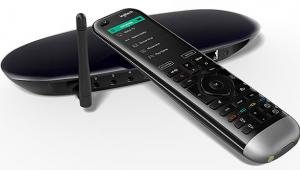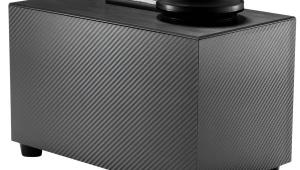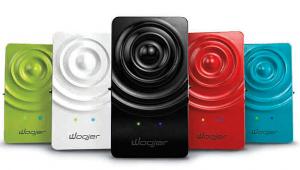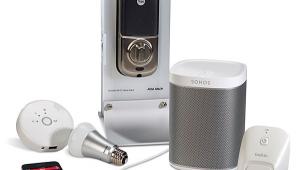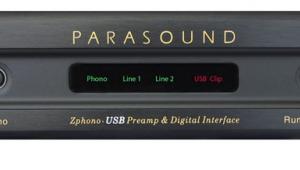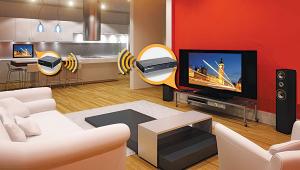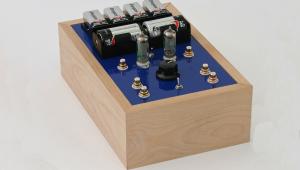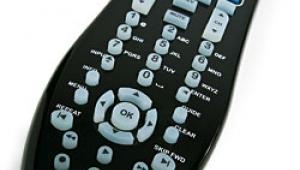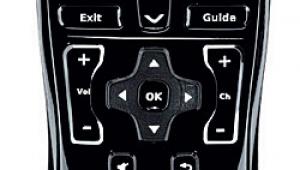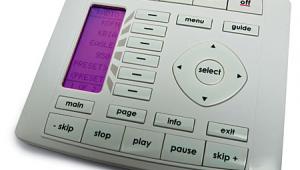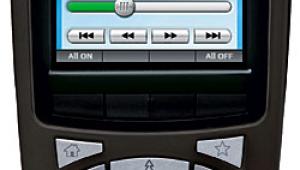Furman IT-Reference 20i Power Conditioner
I don't personally believe in fairies, nymphs, leprechauns, or even the boogeyman. In a rational, engineering-driven world, there's little room for such simpleminded fantasies. Reason, and reason alone, can explain the universe at large. Logic isn't only for Vulcans (now there's something I can believe in); it makes our part of the galaxy go around, too. That being said, I'm beginning to grudgingly accept the existence of gremlins—gear gremlins—as I don't have any other explanation for the last two months of nothing but misfortune and malfunction when it's come to anything electronic in my home.
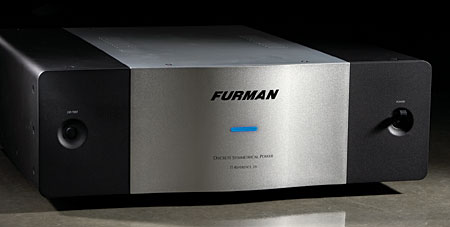
Here's a condensed version of the woeful wretchedness. First, my Logitech Harmony 890 Pro remote acquired a capricious, random temperament, choosing to intermittently control—or not control—various components in my system. Shortly thereafter, the HD72 DLP projector on loan from Optoma decided to display an image only in five-minute intervals. After emerging from storage, my 34-inch Philips HDTV was plagued by its share of problems, such as hum bars, flashes, lines, and blue screens that appeared after scene changes or commercial breaks. There's more, but I can't bear to go on.
As luck, fate, karma, or (insert belief here) would have it, a Furman IT-Reference 20i power conditioner—all 83 pounds of it—arrived in the midst of the misery. Now, I used to feel nearly the same way about "power conditioners" as I treat Bigfoot sightings: It would be great if the claims were true, but I'll believe it when I see it for myself. Footprints in the mud and white papers with cool-looking graphs don't do it for me.
Power Trip
The IT-Reference 20i isn't a flashy, bells-and-whistles-aplenty kind of product. It's only designed to do a couple of things—and it does them in the background without any fanfare. One service it silently provides is surge protection. Now, I've had enough up-close experience with surge damage to know that anyone who doesn't have his or her system hooked up to a good—and I mean good—surge suppressor is playing with electrical fire (possibly literally). You need to protect against all the potential ways for a surge to infiltrate and fry your system: the AC lines, the phone lines, the cable/satellite lines, and perhaps even the speaker wires if you have outdoor speakers. Surges are like desperate hitchhikers. They don't care what they ride on as long as they make it to their destination.
The IT-Reference 20i includes instantaneous voltage-surge suppression for everything mentioned above except the speaker connections. (That's a rare feature to find in any surge suppressor.) According to Furman, suppression of instantaneous voltage surges via the AC lines is a byproduct of the power-conditioning circuitry. Separate modules built into the unit protect against coaxial and telephone-line surges (three coax/one telephone).
The IT-Reference 20i's main purpose in life is power conditioning. Although you can't smell it or see it, the electricity that courses through the AC wiring in your home is a filthy, dirty thing that gets contaminated by electromagnetic interference (sometimes at radio frequencies). There are sags and/or surges in voltage thanks to a variety of factors, including other A/V components in your home theater system. Potentially, such AC noise can adversely affect low-level signals. Some of the worst symptoms include audible buzzing from ground loops and visible video hum bars. The end result is a system that doesn't live up to its audio or video potential.
An additional problem comes from the high-current needs of big power amplifiers. When the outlet runs out of juice, or it's filled with noise, jumbo amplifiers run out of steam—and your system's dynamics suffer as a result.
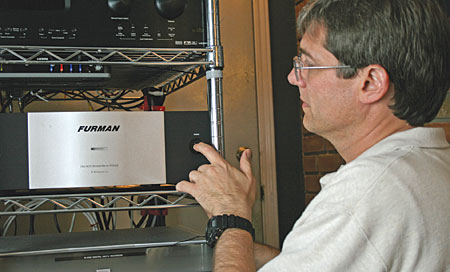
That's the theory, anyway.
Juice Pump
Furman's Discrete Symmetrical Power technology involves the use of four discrete AC outlet banks providing separate lines of AC that have been scrubbed clean. It's a design that's supposed to eliminate ground loops, hum bars, power-supply backwash (that just sounds disgusting), and other electrical nastiness you can get when you connect multiple pieces of electronics together. It's the kind of electrical pampering your preamp or your Blu-ray or HD DVD player would love.
Power amps, on the other hand, can be noisy AC hogs, and Furman's Power Factor technology provides squeaky-clean electricity to your power amps without letting them electrically interfere with the other low-level components in your system. In addition to general AC hygiene, the technology provides a current reserve—in the case of the IT-Reference 20i, over 9 amps—that gives your amps the extra split-second juice they need when you're attempting to blow up 007 or listen to the 1812 Overture.
Playing a Few Cords
I started testing the IT-Reference 20i by hooking it up to the internal subwoofer amplifiers in a pair of the new Definitive Technology Mythos ST speakers. (See the full review on page 74.) I'd like to say I did this for some highly scientific reason. The truth is, the Mythos STs arrived within a day or two of the Furman piece, and the IT-Reference 20i's 83 pounds convinced me that I should move it as little as possible. The Mythos STs and my deranged Philips HDTV were the closest components with power cords that could reach the Furman's bank of outlets.
Still, it wasn't totally because of a desire to avoid a hernia (or hard work) that I started with this setup. Each of the new Def Techs has an active woofer and two passive radiators. A 300-watt digital amplifier powers the active woofer in each speaker. If Furman's claims were true, surely there'd be at least a tiny audible difference with this much of a load to provide AC for.
Did I say "audible difference"? Try audible and visceral. Hooked up directly to the AC from the wall, the Mythos STs were already an excellent set of speakers. But, hooked up to one of the discrete AC outlet banks on the back of the IT-Reference 20i, the Def Techs seemed to grow in stature with bass that not only increased in heft and depth but also tightened and became more dynamic than before. I was in no way prepared for the difference the Furman made and had to hook and re-hook the power cords many times before I believed that what I was hearing was real.
Here are two quick examples. During the dueling drum sequence ("Batalla de los Tambores") on the Godsmack Changes DVD, the drum hits sounded both deeper and tighter. Overall, the high-frequency content sounded cleaner, which was something I didn't expect at all since the amps in the Mythos STs only power the woofers. I suspect it was the result of the tightened, cleaner bass output that was no longer masking the output of the midrange and high-frequency drivers, but that's sheer supposition on my part. On Kathy Kosins' Vintage CD, the svelte song "Go Slow" opens with a saxophone solo that grew richer and warmer when the speakers got their AC power through the Furman, although, once again, I'm not sure why that range would be affected in this case.
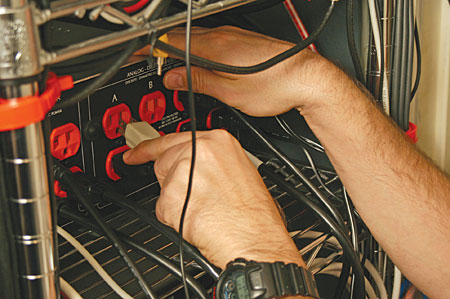
Without the IT-Reference 20i, the Mythos STs are still some of the finest-sounding speakers I'm familiar with in their price range. But, with the effects of the Furman, they took a step beyond the step beyond they were already at.
My ostensibly cranky Philips HDTV received a similar epiphany courtesy of the IT-Reference 20i. Gone were the hum bars and intermittent lines and flashes. By itself, that would have been enough, but the apparent increase in black level and detail present in some really high-quality HD material from Discovery HD Theater was knock-me-down-with-a-burst-of-infrared astonishing. I felt the need to apologize to the old tube set for all the awful things I've said about it recently. (I didn't apologize, but that doesn't mean I didn't feel the need to.)
Smaller, much more subtle differences in the soundstage and overall sonic detail were noticeable when I ran isolated tests with other individual components, such as my Sunfire Theater Grand TGP-5 preamp. Perhaps I should have started there, since the initial effects were so overwhelming with the speakers and the HDTV that anything else was anticlimactic.
Gremlins, Be Gone!
At $3,499, the IT-Reference 20i is a component that most of us will have to swallow hard before adding into our systems. Furman's product-application guide shows the IT-Reference 20i as being appropriate for home theater systems in the $25,000-and-up range. Furman, thankfully, does offer less expensive, less extensive IT-Reference and Elite models for less stratospherically priced systems.
The electrical exorcism that the Furman IT-Reference 20i performed on the gremlins in my gear has given me a near-evangelical zeal for the concept. I've been able to cancel follow-up appointments with both my therapist and my ENT doctor. I've vowed that no system of mine will ever be connected without a good power conditioner. Bear in mind that I only had the opportunity to try an extremely limited number of components with the IT-Reference 20i on a single-branch circuit; your mileage may vary. However, after experiencing the difference firsthand, I'm happy to say that I'm a true believer.
Sasquatch theories, on the other hand, will take a little more convincing.
It's extremely rare to find a system that offers performance for both music and movies in a package that looks this stunning. And it's even more rare to find it at this price.
Highlights
• Provides surge suppression
• Contains four discrete AC outlet banks
• Has over 9 amps of current reserve

